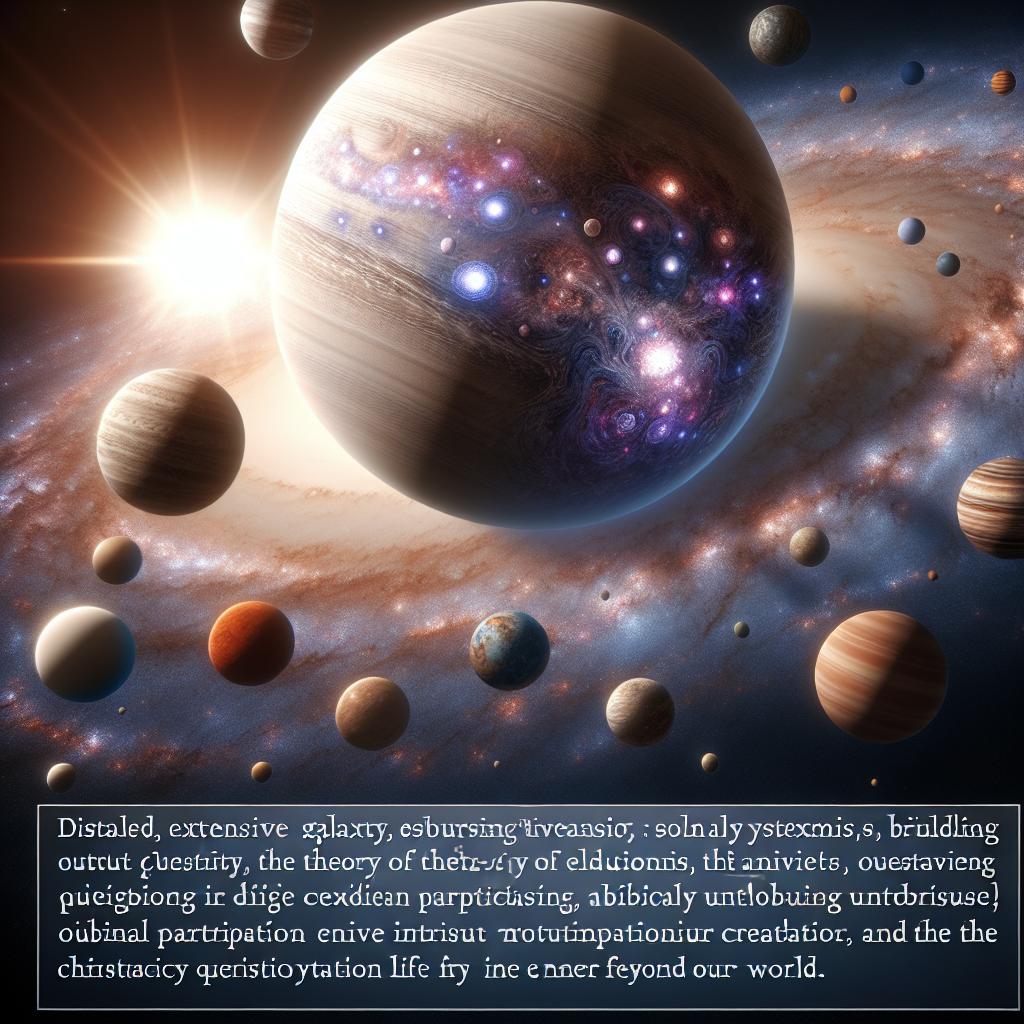
Challenges of Extrasolar Planets: Evolutionary Dilemmas Explored
Published: 02 June 2024
Is There Evidence of Life on Extrasolar Planets?
Many evolutionists speculate that if life evolved on Earth, it could have evolved elsewhere in the universe. The search for extrasolar planets, or exoplanets, has been ongoing for years, with over 450 objects catalogued in exoplanet lists. While Scripture does not explicitly mention the existence of planets around other stars, it does affirm that God created the Earth to be inhabited (Isaiah 45:18). As creationists, we can apply observational science to understand the existence of exoplanets.
From a creation perspective, it is plausible that God created exoplanets on Day 4 of Creation Week, along with the luminaries. Our own solar system is unique because of Earth's design as a safe and stable environment for life. However, it is important to note that even if an Earth-sized planet is discovered, it does not automatically mean it is truly Earth-like or habitable. Earth's position in the "habitable zone" of our solar system is specific and carefully designed by God to sustain life.
How Did Exoplanets Form?
The origin of exoplanets poses challenges for scientists trying to explain their formation from clouds of gas and dust. One significant issue is that the hypothetical disk of gas and dust tends to dissipate too quickly for planets to grow to their observed sizes. Additionally, many exoplanets orbit extremely close to their stars, making them too hot for materials to condense and come together by gravity. Some exoplanets even lose matter due to their proximity to the star or from being "boiled away."
To address these problems, evolutionary astronomers proposed the concept of orbit migration. This theory suggests that planets could form far away from the star in a cooler region and then migrate inward due to friction from the dust disk. However, orbit migration theories face difficulties because the dust disk tends to dissipate before the planet can reach its observed position. Moreover, new challenges have arisen with the discovery of exoplanets with reversed or highly inclined orbits that cannot be explained by dust disk dynamics alone.
Do Exoplanets Support Evolutionary Theory?
The existence of exoplanets does not necessarily support evolutionary theory. While some scientists speculate about the possibility of life on exoplanets, no known exoplanets are considered habitable. Even if an Earth-like planet with appropriate conditions for life were discovered, it does not guarantee that life could evolve on that planet. Life on Earth is a result of God's deliberate creation and sustenance.
The variety observed in extrasolar planetary systems highlights God's creativity and design in the universe. As astronomers come closer to detecting Earth-sized planets, it is crucial not to confuse an Earth-sized planet with a truly Earth-like planet. Earth's position in the habitable zone, with liquid water and a suitable atmosphere, is intricately designed by God for life to flourish. The search for extrasolar planets continues to captivate scientists and evoke questions about the possibility of life beyond Earth. As Christians, we can approach this topic from a biblical perspective, acknowledging that Scripture does not explicitly mention the existence of planets around other stars. However, observational science provides evidence for the existence of exoplanets.
While evolutionary theories attempt to explain the formation and potential habitability of exoplanets, they face significant scientific problems. The challenges posed by orbit migration, reversed orbits, and highly inclined orbits cast doubt on these explanations. Ultimately, the existence of exoplanets does not support evolutionary theory nor provide evidence for life evolving elsewhere in the universe.
As believers, we can marvel at the diversity and complexity of God's creation while recognizing that Earth's unique characteristics make it a haven for life. We must remember that our dependence is on our Creator, who designed and sustains not only our planet but also the entire universe.
